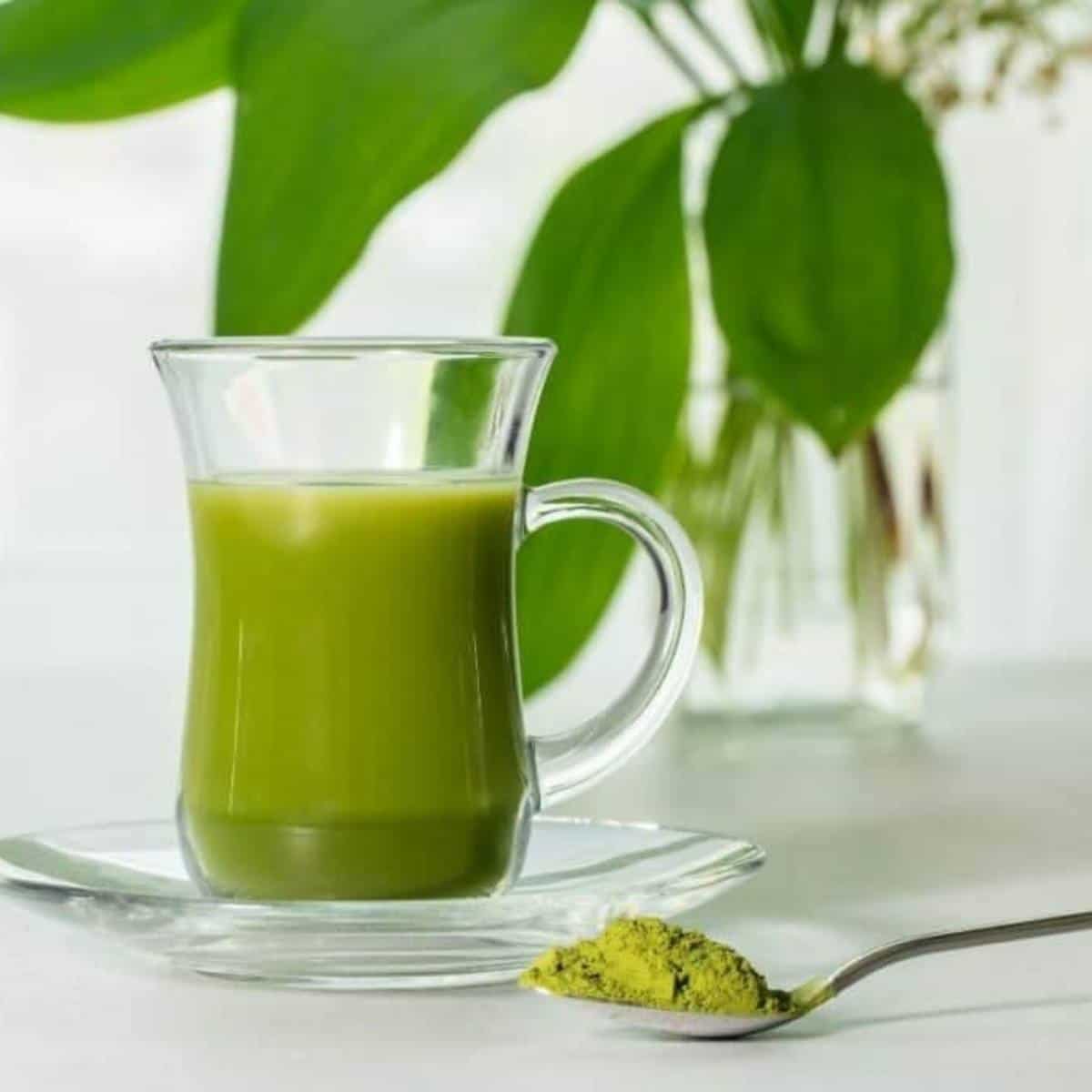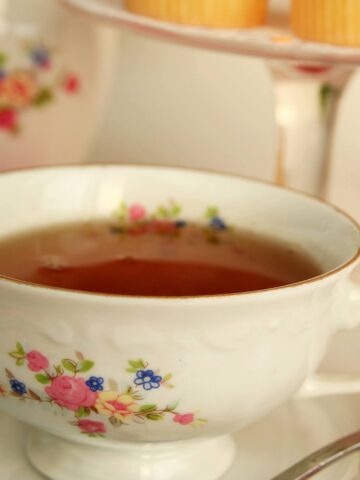Pregnancy is a life-changing experience, and one that can sometimes feel a little stressful and overwhelming – and this is hardly surprising!
At times when things feel too much, it is only natural to want to turn to our old comforts – including a good old cup of matcha. But should you Drink Matcha While Pregnant?”
Many women have concerns about indulging in their favorite beverages during pregnancy, but we have everything you need to know to keep you and your baby safe and well.

What Is Matcha?
As you may be aware, matcha is a type of delicious green tea. It is brewed through the process of grinding young tea leaves into a powder, which is then added to hot water – a contrast from the typical green tea process, which sees leaves infused and water and then taken out.
Matcha allows you to obtain and absorb all of the benefits and nutrients from the tea, as you are consuming every part of the plant.
Matcha tea is recognizable thanks to its distinctive bright green shade – this comes from the growing conditions of the plant.
The leaves used for the tea are grown on bushes that are kept in the shade, and this change increases the chlorophyll levels of the leaves, boosting both the color and the nutritional value.
What Are The Benefits of Matcha Tea?
Matcha tea is popular thanks to its distinctive taste, and also as a result of the numerous health benefits associated with the plant. Some of the main advantages include:
High In Antioxidants
Matcha is a plant that is rich in catechins – a powerful form of natural antioxidant which helps to stabilize the potentially harmful free radicals in your body – these are the compounds that can cause damage to your cells.
Matcha tea uses the entire leaf, allowing you to absorb more antioxidants than traditional green tea, boosting the benefits that you receive.
Protect The Liver
A healthy liver is crucial for overall well-being; this is the organ responsible for removing toxins from the body, as well as processing nutrients and metabolizing drugs.
According to experts, matcha can play a key role in boosting the health of your liver, reducing enzyme levels and general damage. Regular consumption is also thought to help ward off liver disease.
Boost Brain Function
Matcha is also thought to help boost brain and cognitive function, allowing you to feel sharper and more focused, as well as improving concentration.
Attention span, memory, and reaction times can all be improved with the regular consumption of matcha.
As an added bonus, the substance includes an important compound, known as L-theanine, which can increase the activity of alpha waves in the brain, boosting relaxation, and decreasing your stress levels.
This compound also helps to negate the negative effects of caffeine, helping you to avoid the “crash” that usually follows a cup of coffee.
Reduce The Risk Of Cancer
Green tea has long been associated with lowering the risk of cancer, but the health-boosting compounds of matcha could enhance this even further.
Studies show evidence that green tea could slow the rate of growth in cancer cells, as well as play a role in reducing the size of existing tumors.
Matcha contains elevated levels of epigallocatechin-3-gallate – this is a substance that has been shown to kill off prostate cancer cells, and which boasts powerful anti-cancer properties, including helping to prevent liver, lung, and skin cancers.
Boost Heart Health
Green tea has long been proven to help protect against heart disease thanks to its ability to prevent the oxidation of, and lower the levels of bad cholesterol – LDL.
Regular consumption of green tea can also help to reduce the risk of strokes and heart attacks, and the added benefits of matcha will help to enhance these advantages and protections.
Manage Your Weight
While this is unlikely to be a key concern during pregnancy, matcha can also play a key role in helping you to manage and lose weight, as it speeds up metabolism, boosts fat burning, and increases your overall energy levels.
More Matcha Recipes
Is it Safe to Drink Matcha during Pregnancy?

During pregnancy, many women become understandably more cautious about the things that they eat and drink, and there are a few things that we know are totally off-limits, including cigarettes, alcohol – and too much caffeine.
There are just a few risk areas that must be noted when consuming matcha during pregnancy, and these include:
Folate
The folate vitamin, known more commonly as folic acid or vitamin B9, is an important supplement during pregnancy, and many women are encouraged to increase their folic acid intake – this can help to reduce the risk of birth defects such as neural tube defects, which can be devastating.
Matcha and other green teas can reduce the availability of folic acid to the mother, increasing the risk of deficiency and birth defects.
According to experts, mothers who consume over 2 cups of green tea a day are at increased risk of developing neural tube defects during pregnancy due to the reduction in vitamin B9 levels.
Caffeine
Caffeine is another concern during pregnancy, and most expectant mothers are advised to limit their consumption to under 200 mg per day.
Too much caffeine during pregnancy increases the risk of preterm birth, a low birth rate of neonates, and even pregnancy loss – this is largely due to the reduced ability of the body to clear caffeine from the blood during pregnancy.
Matcha tea does contain high concentrations of caffeine, thanks to its creation using the whole leaf – this enhances the levels of all components.
A teaspoon of tea can contain up to 70mg of caffeine, so expectant mothers should aim to stick to one or two cups maximum a day to reduce the risk of issues and complications.
Iron
Iron is one of the most important vitamins during pregnancy, as iron plays a key role in transporting oxygen to the baby.
Reduced iron levels can increase the chances of the baby developing conditions such as anemia, and extended deficiencies can result in pale skin, fatigue, issues with breathing, and heartbeat increment – this can apply to both the baby and the mother.
Matcha tea can restrict the absorption of iron into the body, and this can be by up to 64% for iron sources that are not derived from meat.
If you are low on iron or typically have a number of issues absorbing iron, then it is a good idea to cut down on, or eliminate, matcha tea from your diet for the duration of your pregnancy – iron is the most important thing you need to be getting into your body.
Our Most Popular Articles
Final Thoughts on Drinking Matcha While Pregnant
As a general rule, drinking one or two cups of matcha tea per day while pregnant should not cause any real issues during your pregnancy and are generally recommended as safe and even beneficial.
As with everything in life, you should enjoy your favorite beverage in moderation, as part of a healthy and well-balanced diet.
Don’t forget to get in touch with your medical provider if you have any specific concerns or questions – they will be on hand to offer plenty of reassurance, and will have advice that is relevant and personalized to your health and pregnancy to help offer total peace of mind.




